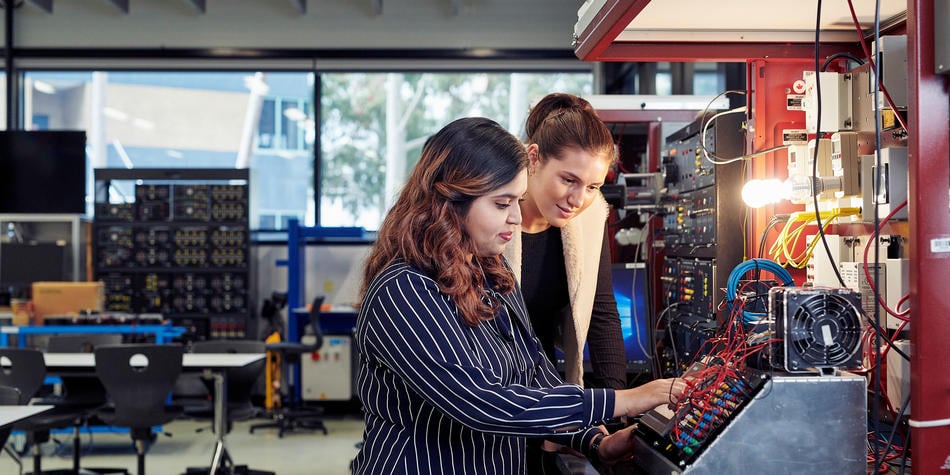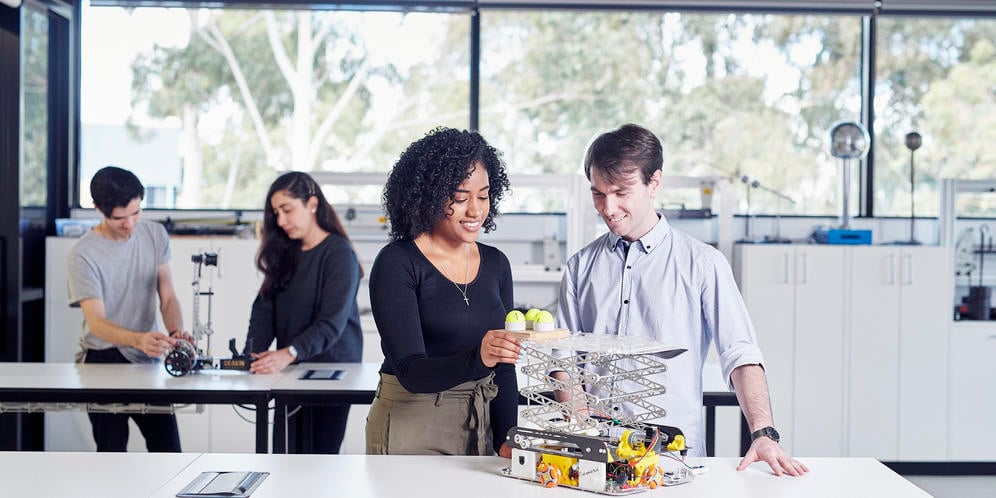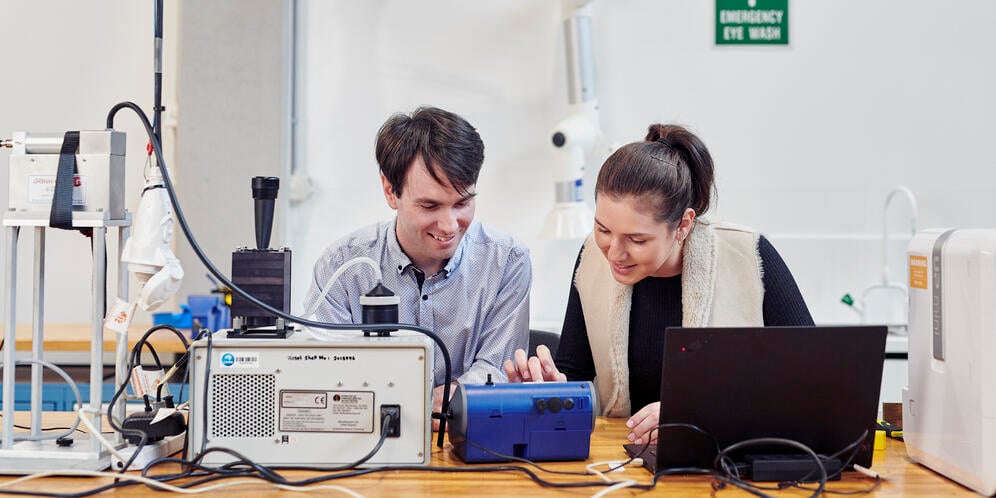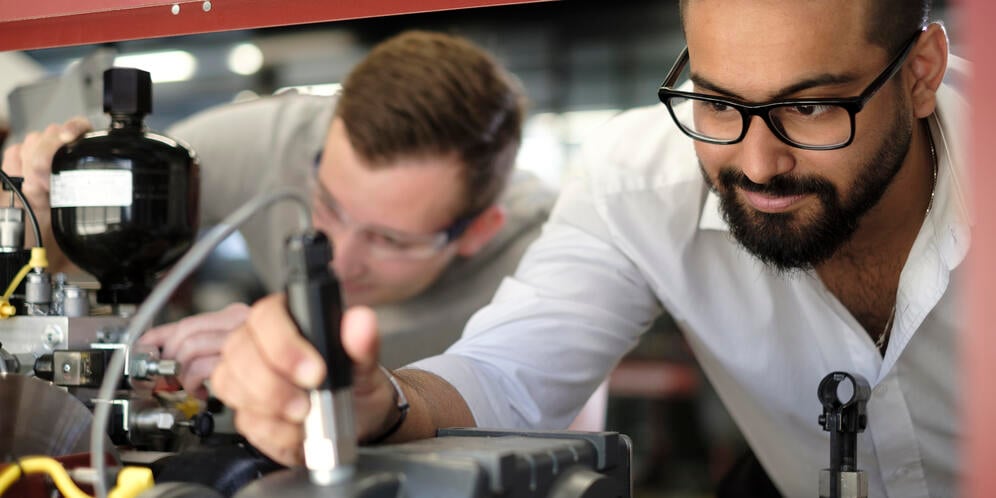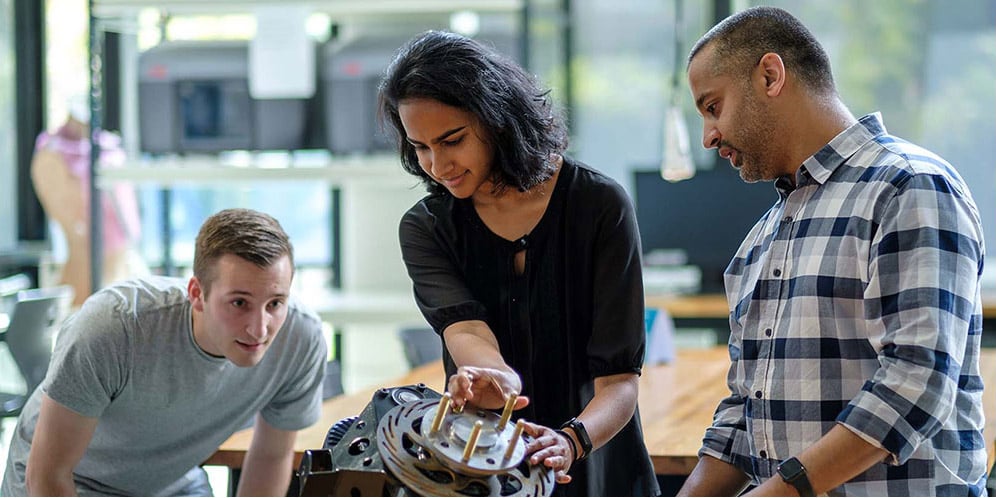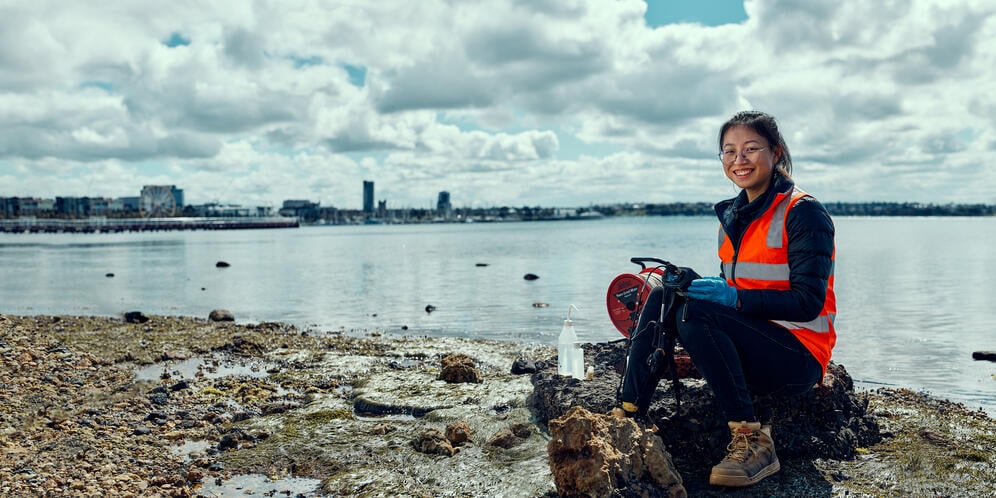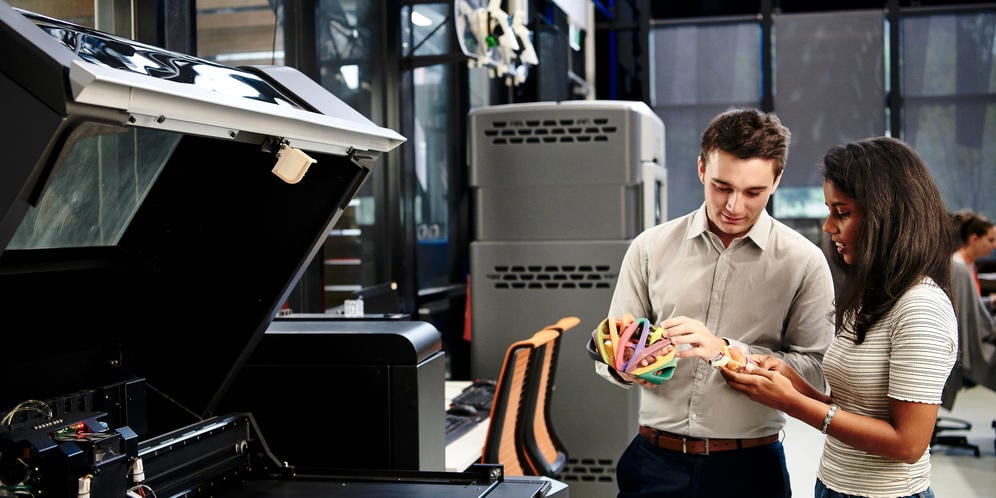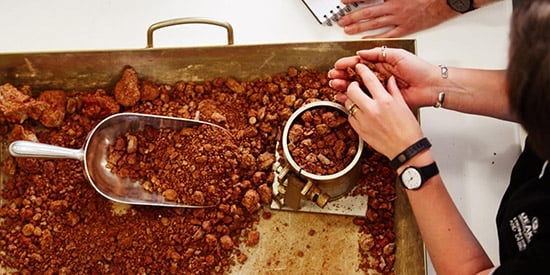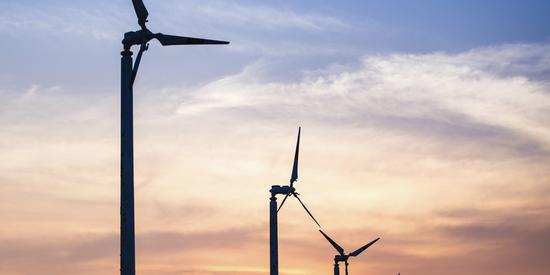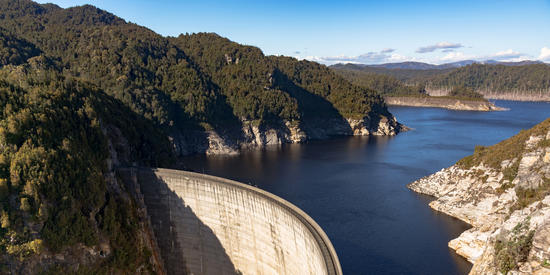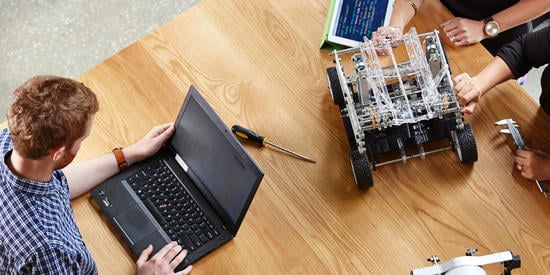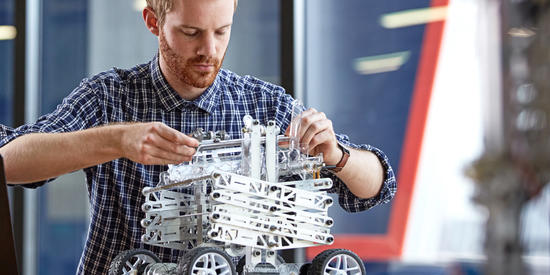Get work-ready
With some of the best engineering facilities in Australia, project-oriented design-based learning, and workplace learning in the industry, you can graduate from your electrical and electronics engineering course job-ready. Enter the workforce with confidence and get started straight away in this exciting growth industry.
Undergraduate
Undergraduate (your first degree)
An undergraduate degree is generally completed between two to four years, depending on the pattern of study and any recognition of prior learning you may have. Associate degrees, bachelor and bachelor with honours are all undergraduate degrees.
Postgraduate
Postgraduate (further study)
A postgraduate qualification can be undertaken by students who have already completed an undergraduate degree or possess significant, demonstrable work experience. Postgraduate courses include graduate certificates, graduate diplomas, masters and PhDs, as well as specialist programs for industry professionals.
Research
Higher Degrees by Research (supervised research)
Research degrees are research based master’s or PhD programs that focus on a single area of expertise. They provide students the opportunity to carry out highly specialised research under expert supervision.
It's a great learning experience that most of my units have a practical and hands-on aspect to them. There is always someone to answer a question you may have.
Byron Goodship
Engineering student
Career opportunities
With an international skills shortage in the engineering industry, Deakin graduates are in demand both here in Australia and further abroad. Recent surveys found that over 92% of our recent graduates found full-time employment within four months of completing their course.^ Employers seek out Deakin graduates for their forward-thinking, innovative and entrepreneurial qualities.
As an engineering graduate, with a major in electrical and electronics, you can gain employment in:
- power generation and distribution
- electronic design
- factory control
- local government
- public works
- consulting.
Flexible study options
Engineering at Deakin is distinctive because our courses are available on campus and online. From 2024, you can choose to study at our state-of-the-art engineering precinct at Geelong Waurn Ponds Campus, our new purpose-built facilities at Melbourne Burwood Campus, or online. You can also set your own pace and switch between part-time and full-time study to fit around your work, lifestyle and other commitments.
Engineering facilities
You'll get hands-on learning from year one in our state-of-the-art engineering facilities. Students explore endless possibilities in digital manufacturing, computer modelling, virtual reality environments, a high-voltage tesla lab, 3D printing and rapid prototyping capabilities.
Accreditation
Deakin's Bachelor of Engineering (Honours) is accredited by Engineers Australia.# This accreditation gives our degrees international recognition, allowing graduates to practice as professional engineers in many countries around the world.
Project-oriented design based learning
Project-oriented design based learning is a key feature of our engineering degrees. This teaching method weaves practical learning experiences through each degree. Students do team-based projects and develop solutions to industry needs.
Study with the best
Engineering at Deakin is ranked in the top 1% globally.* This rating highlights Deakin’s world-class facilities, academic reputation, employer reputation and research impact.
Discover engineering at Deakin
Electrical and Electronics Engineering at Deakin
With some of the best engineering facilities in Australia, project-oriented design-based learning and industry workplace experience, learn how to graduate ready to solve one of the biggest world challenges.
Industry partnerships
Discover more about Deakin’s invaluable industry partnerships, and how they ensure engineering students graduate job ready.
Engineering precinct
Explore our state-of-the-art engineering facilities at our Geelong Waurn Ponds Campus, housing some of the most advanced systems, equipment and technologies in Australia.
Leading the way in engineering research
Deakin engineering is ranked highly by Excellence in Research for Australia (ERA), a national research evaluation framework. ERA awarded Deakin the highest ranking possible of 5 in the categories of Electrical and Electronic Engineering, Materials Engineering and Manufacturing Engineering.
Mechanical Engineering was awarded a ranking of 4 (classed above world standard), highlighting Deakin’s strength in engineering related research.
Our research excellence helps to inform our teaching curriculum to ensure undergraduate students are aware of the developments that will shape the engineering industries of the future.
Research with us
Engineering at Deakin is research led rather than research informed. Develop an original idea with us, and we may end up teaching it to future Deakin students! We’re associated with strategic research centres including the Institute for Intelligent Systems Research and Innovation and the Institute for Frontier Materials.
Browse other disciplines within engineering
Choose an area that you're interested in and learn how Deakin's extensive range of study options and experiences can help turn your dreams into reality.
Footnotes
*2022 QS World University Rankings by Subject and 2022 Times Higher Education World University Rankings by Subject.
^QILT Student Experience Survey 2020 and 2021.
#Deakin University’s Bachelor of Engineering (Industry) (Honours) is currently seeking provisional accreditation by Engineers Australia.

